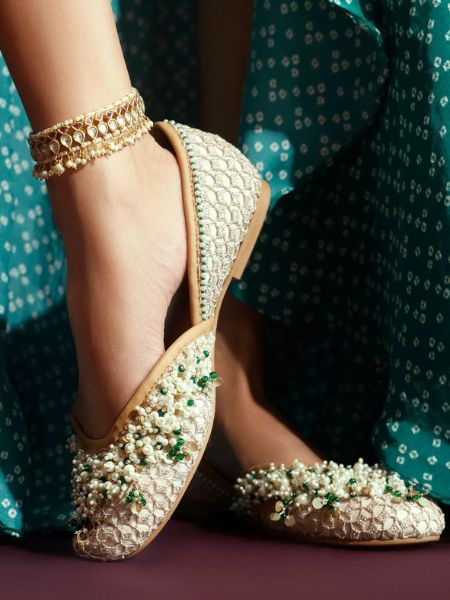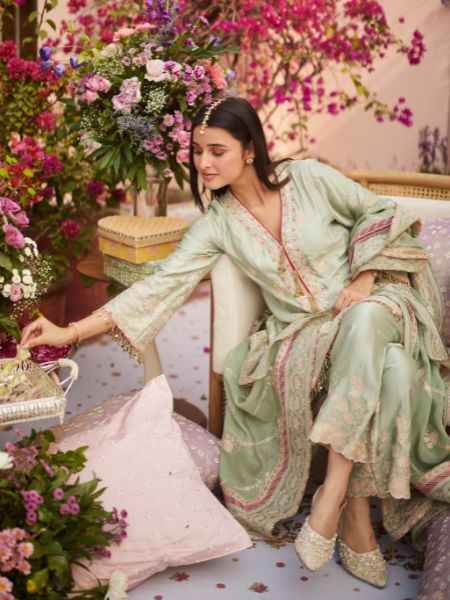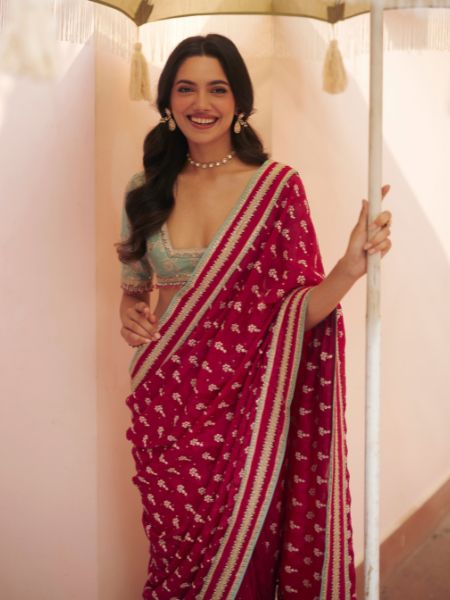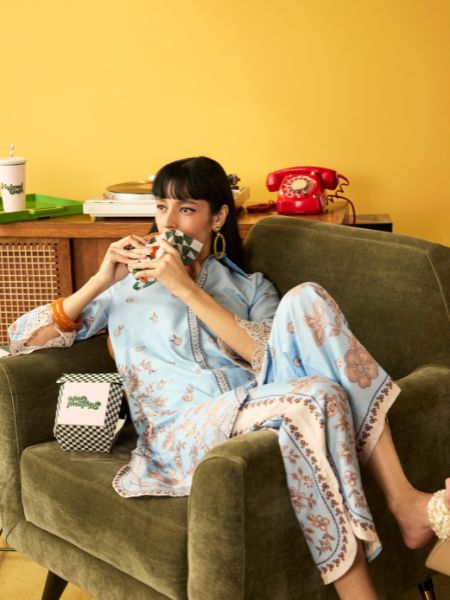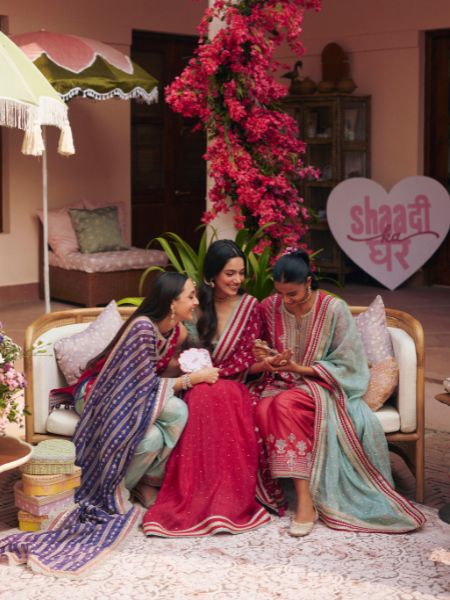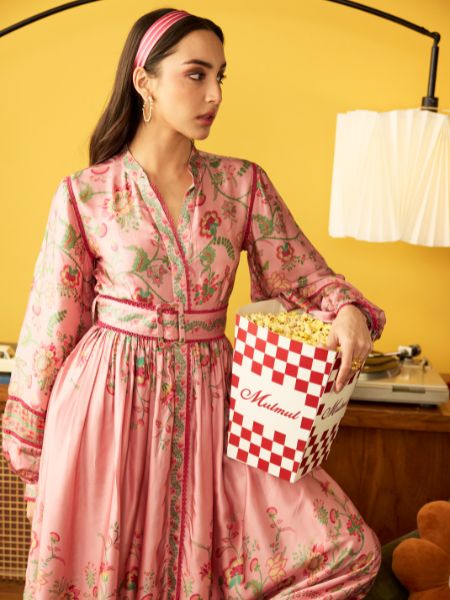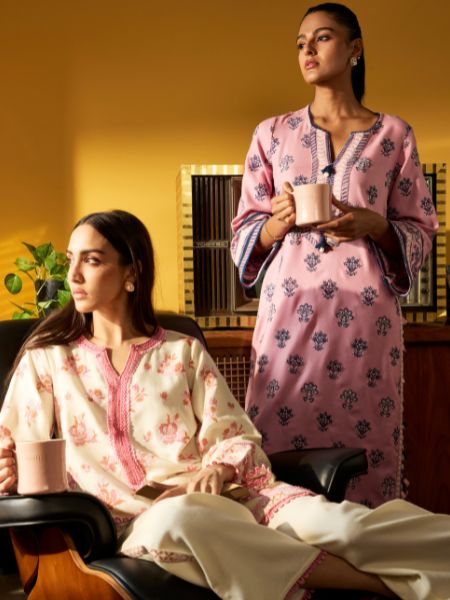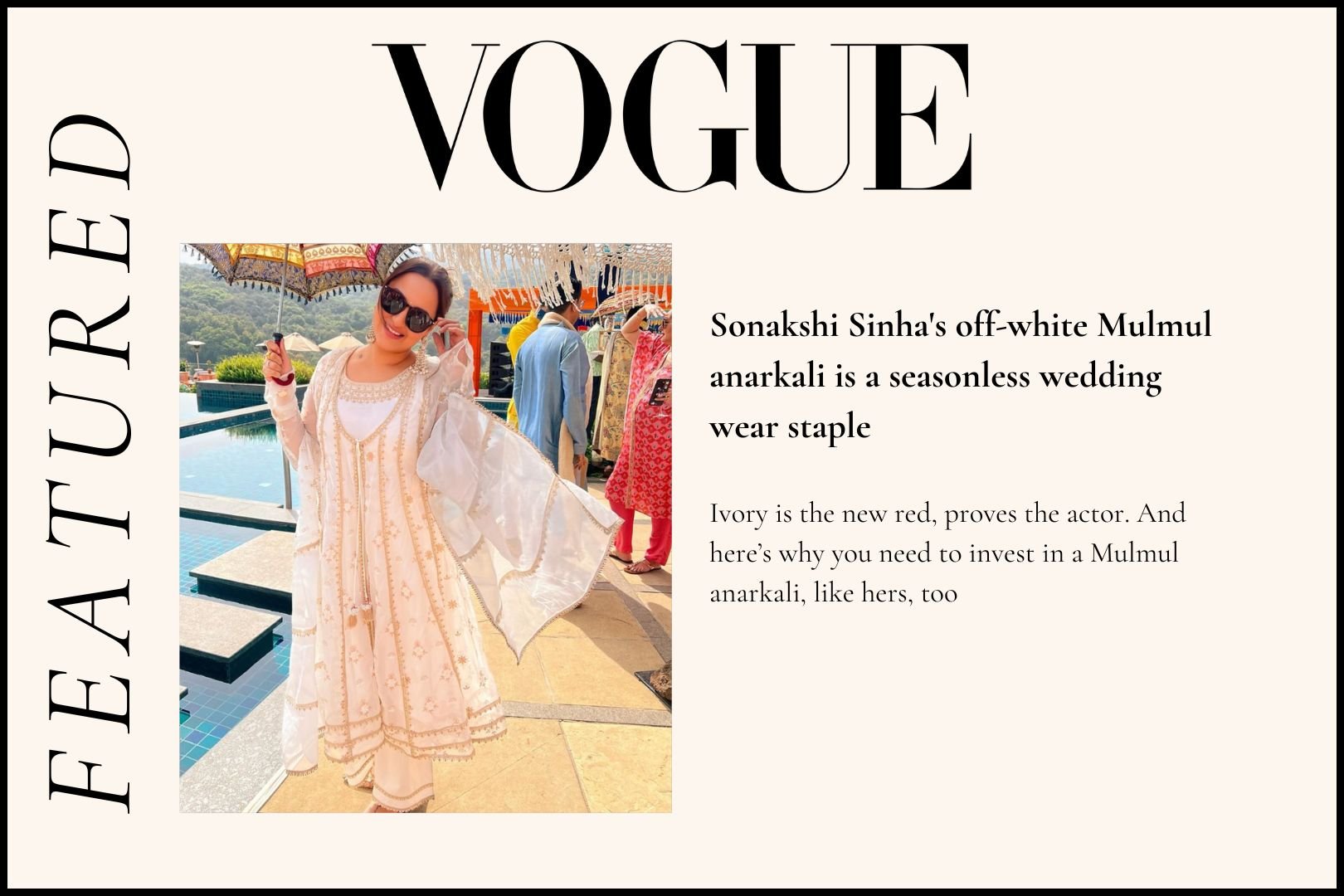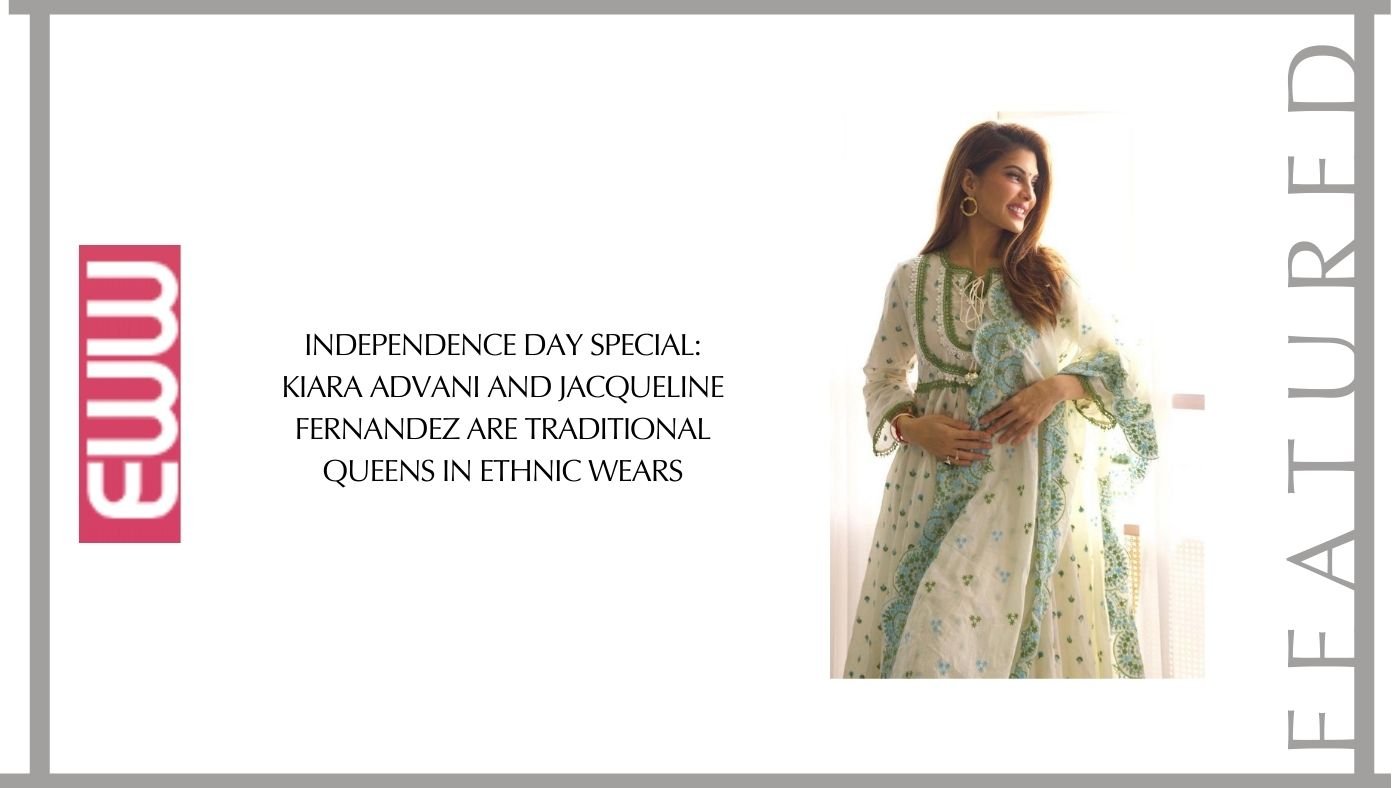Everything about Mulmul is unique
Homegrown Indian label Mulmul aims to create long-lasting heirloom styles in limited numbers using high-quality materials. The brand’s easy-to-style garments are made of natural fibres in a sustainable way. Mulmul’s CEO Harsh Modi chats with Fibre2Fashion about the brand’s inspiration—India’s rich textile heritage—and future plans.
Fibre2Fashion: What inspired you to start Mulmul, and how has the journey been so far?
Harsh Modi:
Our family has always been in the textile business. We were producing embroidered fabrics and laces for international brands like Zara, H&M, etc. With the Indian markets becoming more organised and the advent of e-commerce, we decided to launch our own label. Mulmul has been received with open arms by the customers. The brand has grown exponentially in our first few years and we are very grateful for it.
F2F: How would you define the aesthetic and vibe of your brand’s designs?
HM:
The aesthetics and vibe of the brand are very simple, clean yet chic. The Mulmul woman is classy, stylish, and confident.
F2F: How do you ensure the quality and sustainability of your garments?
HM:
We are a 100 per cent sustainable brand and only use natural fabrics. We have completely eliminated the use of plastic from our packaging. Quality is something that’s ingrained in our genes. We have a preventative vs corrective approach when it comes to quality.
F2F: Can you describe a design that you are particularly proud of, and why it stands out to you?
HM:
My wife Saumya and sister Bhavini are design directors, who are responsible for curating all the beautiful designs for Mulmul. They outdo themselves with every new collection that we launch; therefore, it is very difficult to pick one favourite. The way they have been able to make Indian wear look modern and chic is something I am very proud of.
F2F: Mulmul uses muslin, a fabric with a rich history in Indian culture, as the base for its garments. How do you stay true to this heritage while also appealing to a modern, global audience?
HM:
My father is a textile maestro and he’s the one who introduces us to all the amazing fabrics that we use. Unfortunately, with the overpowering influence of the west on our fashion, we were losing sight of our beautiful textile heritage. Mulmul has been able to bring back some of these fabrics in a contemporary way using modern silhouettes and new age colour patterns.
F2F: Can you tell us about a successful marketing campaign that Mulmul has run in the past, and what made it successful?
HM:
Mulmul was first launched as an e-commerce brand, and I believe we were able to capitalise on the way technology around performance marketing has developed. When people believed that SKUs beyond a certain price point were impossible to sell online, we came in and busted the myth. We even became a case study for Meta at Melno Park, California.
F2F: Can you share some of the celebrity collaborations that Mulmul has done in the past? How do you approach the design process when working with a celebrity on a collection?
HM:
Yes, we have collaborated with some of the biggest names in the industry from Alia Bhatt to Jahnvi Kapoor, Sarah Ali Khan, and Kiara Advani. But all our styles were chosen and worn as they are, without any customisation.
F2F: What makes your brand different from other ethnic wear brands?
HM:
I believe everything about Mulmul is unique—starting from the finest Supima cotton fabric that we use, the exquisite embroidery and lace patterns that we create in-house, and of course the styles that we design. In short, everything that makes a part of a Mulmul garment is made to order thus making the entire process unique.
F2F: What challenges have you faced as an Indian ethnic wear brand, and how have you overcome them?
HM:
Like I mentioned earlier, the market was very kind to us from the word go. However, we did have to create awareness amongst some people about choosing quality over price. Once they experience Mulmul, they find it almost impossible to go back to traditional low-quality stuff.
F2F: How do you engage with your customers and create a community around the brand?
HM:
Mulmul, in a short span of time, has built a huge family of loyalists. Not only do we deliver the finest products but also ensure that the shopping experience for our customers is always a ‘wow’ experience—be it online or at one of our offline stores in the most premium retail locations in different parts of the country.
F2F: What advice do you have for aspiring fashion entrepreneurs who want to create sustainable and ethical brands?
HM:
I believe that for any business to succeed it must have a strong unique selling proposition and more importantly a very clear ‘why’. The ‘why’ must go beyond just making money. Entrepreneurs needs to ask themselves what impact will they create by going into this business before taking the plunge. Other than that, India is growing at a rapid pace and there’s a huge opportunity for the taking.
F2F: What are your future plans for Mulmul, and how do you plan to grow the brand while maintaining your values and vision?
HM:
At Mulmul, we believe in consistent growth without losing focus of our core values. We plan to continue to grow our online and offline presence as well as expand our product lines. We have introduced Mulmul wedding and Mulmul studio (western wear) as new categories, and the plan is to build on them further.


